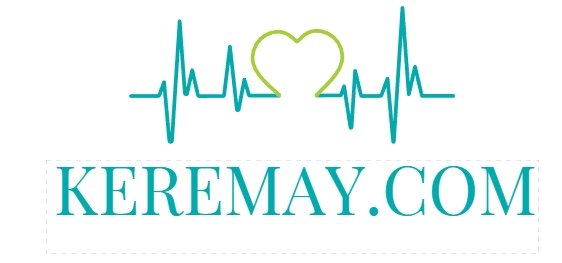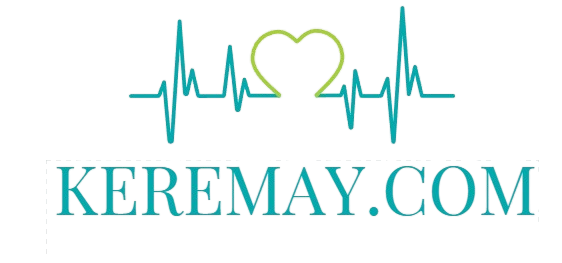You may not realize it, but early detection and prevention are two incredibly important tools that your healthcare provider has when it comes to protecting your health. From the common cold to the potentially deadly, screening and early detection can be the key to combating diseases that may otherwise catch you off guard. Learn more about how screening and early detection can help prevent some of the most common diseases.
1. Staying Ahead of the Curve: The Power of Early Detection
When it comes to health and wellness, early detection is the key to success. Prevention is always better than cure, and finding out potential issues early can be a life saver. With the technology available today, there are more opportunities for early detection than ever before. Technology such as genetic testing, smokeless tobacco, and video cameras have enabled us to find and prevent chronic illnesses before they become more serious.
Genetic Testing. Genetic testing can detect genes that cause certain illnesses and diseases. Companies like 23andMe use a simple saliva sample to determine your genetic makeup and alert you to any potential risks you might have. With the information you receive, you can take steps to reduce your risk of developed diseases and even prevent them from developing in the first place.
Smokeless Tobacco. Smokeless tobacco products like chewing tobacco and e-cigarettes are becoming increasingly popular as a way to quit smoking. These products are not without risks, however. In addition to the known risks of addiction and the health effects of consuming nicotine, they can also cause mouth and throat conditions that, if left untreated, can become even more serious illnesses. That’s why it’s essential to educate yourself on the risks and the proper use of smokeless tobacco products.
Video Cameras. Video cameras can be a great tool for monitoring health and well-being. Wearable cameras are unobtrusive and can capture signs of potential health issues, such as changes in behaviors or bodily functions, before they become more serious. In addition, video cameras can be used to capture the symptoms of an illness, such as dizziness or vomiting, which may help in diagnosing and treating the illness in a timely manner.
Early detection is a powerful tool for reducing the risks of diseases and illnesses. By understanding your genetic makeup, monitoring your tobacco consumption, and using video cameras to check on your health, you can stay ahead of the curve and catch potential issues before they become more serious. Taking care of yourself through early detection can be the difference between life and death.
2. Understanding Common Diseases: What to Look out For
We are all aware of the common dangers that lurk in our environment, from cancer-causing chemicals in our food to dangerous viruses that can cause illnesses if left unchecked. While we can do our best to avoid these health risks, we must also be aware of how to detect, prevent, and treat common diseases.
The symptoms of some common diseases can be easy to spot. For instance, the classic cold or flu can be identified by its common signs of cough, sneezing, headaches, and fever. If you or your family members presents with any of these symptoms, it’s important to visit your doctor for further evaluation and treatment.
In addition, there are some other common diseases that may not be as easy to recognize in the early stages. Common health issues such as high blood pressure, cardiac issues, and diabetes can all start off with unnoticeable symptoms that can become more serious over time. As such, it is important to keep an eye out for any unusual symptoms and habits that could indicate a change in your health.
- Regular checkups – make sure to schedule regular checkups with your doctor in order to keep an eye on any new issues or changes to existing conditions.
- Pay attention to symptoms – even something as seemingly minor as sudden fatigue or difficulty sleeping can be a sign of a larger issue that requires treatment.
- Stay informed – reading up on common diseases and symptoms can help you to identify potential medical issues more quickly and efficiently.
By actively monitoring your health and staying informed, you can better prepare and protect yourself and your family from the unseen dangers that come with many common illnesses. Knowing what to look out for now can help you avoid problems down the road.
3. Screening Methods: Enhancing Disease Prevention
Early prevention and screening are the best ways to ensure protection from illnesses and diseases. That’s why knowing how to screen properly is essential in helping to improve the health of everyone and reduce possible mortality rates. Here are some screening methods that can be used to enhance disease prevention:
- Health Screenings in Schools: Having health screenings in schools helps young kids to keep their bodies and minds healthy. Screening tests, such as vision and hearing tests, are essential in detecting any development or health issues in children at an early age. Seeing a doctor or a nurse practitioner regularly, or even doing routine exams at home can be important to make sure physical and mental health issues in children are addressed before it is too late.
- Occupational Safety Screening: Having regular occupational safety screenings is key to reducing the chances of any form of illness or disease that may arise from a certain job. It’s important to ensure that employees are properly protected and looked after from any hazards in the work area. It doesn’t hurt to keep an eye on the conditions of the equipment used or the chemicals that are around as well to prevent any illnesses that may arise from toxic exposure.
- Genetic Screening and Testing: This type of testing is extremely beneficial when it comes to detecting any type of hereditary deficiencies or illnesses that run in the family. This testing can be crucial in detecting any issues before they become problematic and fixing them in the early stages. It also gives people a chance to understand their bodies better and how to take proper care of themselves.
There are many ways that screenings can be used to effectively prevent diseases. While it’s important to make sure screenings are conducted in a safe and responsible way, the benefits of doing them far outweigh any negative effects. Whether it’s for physical, mental, or occupational health, the ability to detect any issues early on and take corrective measures can be life-changing.
4. Taking the Necessary Steps for a Healthier Future
As we step into the New Year, it is important to focus on what we can do to ensure we are living a healthier lifestyle. Small lifestyle changes can have a significant impact on your overall health. Here are some important steps you should take to have a healthier future:
- Eat a Balanced Diet: Eating a balanced diet is the foundation for a healthy lifestyle. Load up on fruits, vegetables, lean proteins, whole grains, and healthy fats to ensure you’re getting all the essential nutrients your body needs. Also, make sure to limit processed and sugary food.
- Exercise Regularly: Exercise is essential for managing your weight, improving your mood, and reducing your risk for several diseases. Aim for at least 2.5 hours of moderate aerobic activity per week such as running, cycling, or swimming. Additionally, incorporate muscle-strengthening activities into your routine at least two days per week.
- Get Quality Sleep: Getting a good night’s rest is extremely important for your overall health. Aim for 7-8 hours of sleep per night. Ensure you establish a relaxing bedtime routine and create a comfortable Sleep Haven for yourself.
- Manage Stress: Stress is inevitable and can easily accumulate over time. If not managed properly, it can manifest itself into physical ailments, such as headaches or back pain. Take the time to incorporate relaxation techniques into your daily routine such as journaling, meditation, or yoga.
These are just some of the many steps you can take to create a healthier future for yourself. However, even small changes can make a big difference. Start by focusing on one thing you can do each day, and eventually, you will be well on your way to a healthier and happier you!
From early screenings and advanced technologies to diet and exercise, the importance of preventing common diseases through early detection and prevention cannot be overstated. Taking control of your health is a wise investment, and learning about your health and identifying areas of concern is the first step toward reducing your risk and promoting prevention.



